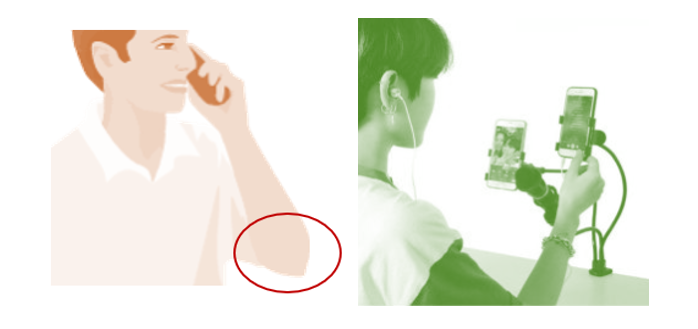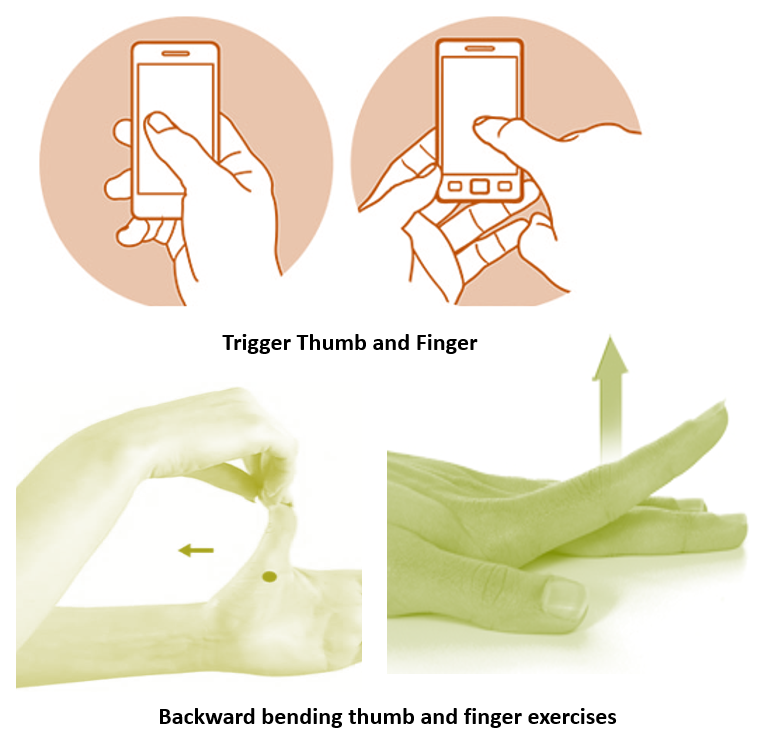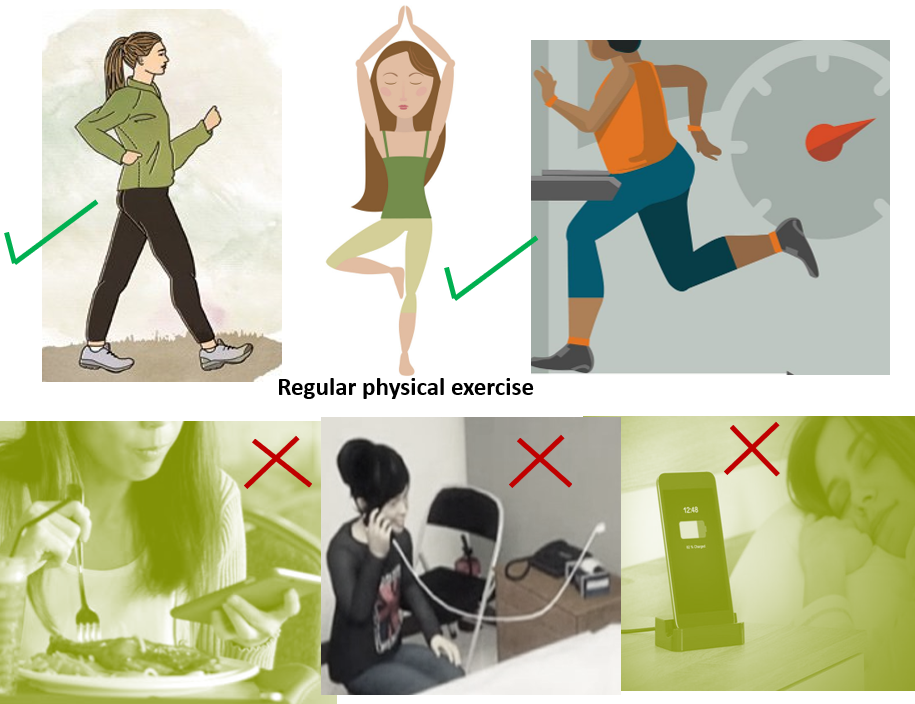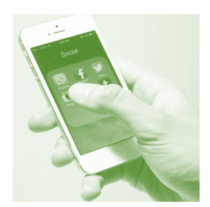Life cannot even be imagined without mobile phones today. There is no denying that mobile phones are one of the most useful gadgets we have today. It does multiple functions right from calls, messages, emails, photography, videos, web surfing, downloading documents, social networking, keeping alarms, marking dates… in short, it manages our lives. So, it is not surprising that we spend hours and hours on it daily.
Here is a glance at the effects of mobile phone usage on our health and some related new age diseases and terms often being used today.
Quick read: 5 Tips for Healthy use of Mobile phones
IMPACT ON HEAD AND NECK
Our heads weigh between 4 to 5 kg but as we angle them down around 15-60 degrees to look at our phones, the effective weight on our necks increases to about 12kg at 30 degrees, rising to 27kg at 60 degrees!
With smartphone users now spending an average of almost 4-5 hours a day with their heads dropped down, this results in “700 to 1,400 hours a year of excess stress seen on the cervical spine” and imagine carrying an extra weight of 15-20 kg on your neck for 4-5 hours a day!!.
Text neck is the new age disease resulting from this leading to head pain, neck pain, and further even arm pain and numbness.
Solutions: Use mobile stands/holders so that head and neck bending can be reduced or avoided.
Do stretching exercises by gradually bending the head backward as far as it can go, holding for 5 seconds, and gradually coming back to the erect position. This should be done every 20 minutes of using mobile phones in the head-down position.



IMPACT ON ARM AND HAND
Cell phone elbow is a painful and strained elbow due to continuous holding and balancing mobile phones.
Solutions: Sometimes using hands-free/ear-phones or speaker-phones could reduce the elbow strain.



Texting thumb is the result of constant swiping and texting on screens which makes the thumb painful and stiff.
50% use one of the thumbs, mostly the right one or the writing hand thumb while 15% use both thumbs for texting. 35% use the index finger for texting, therefore they will suffer from a similar pain stiffness of the index finger.
This is because of the semi-bent or stiff posture the thumb or finger is in for many hours.
Solutions: Stretch the thumb or finger backward, hold for a few seconds and release, after every few minutes of swiping or texting.



EFFECT ON GENERAL HEALTH, SLEEP, AND STRESS
Sitting is the new smoking! Gadgets like smartphones ensure that we are almost 30-40% more sedentary thereby, increasing obesity, stress and increased risk of cardiac and other lifestyle diseases. Sitting in the wrong posture continuously can cause strain and pain in the neck, back, wrists, knees and feet.
Impact on sleep: 40-50% of cell phone users keep their phones next to their bed at night and almost 95% of people regularly use their devices right before bedtime. This can interfere with sleep, as strong and direct artificial light exposure between dusk and bedtime can suppress the release of the sleep-promoting hormone melatonin. This enhances alertness and shifts the body rhythms to a later hour, making it more difficult to fall asleep.
Chronic smart-phone stress: This is now a recognized medical condition, a continuous state of vigilance and restlessness by the most insignificant notifications, along with also feeling tense in the event when notifications or messages from required persons do not come!
Effects on mental health: An underestimated but profound impact on mental health is the growing disconnect from people and the emerging social isolation. The younger one is, the more is the fear of being consumed by the cyber world, causing mood disorders like depression.
Smartphone addiction: Surveys have shown that the average population spends >5 hours on smartphones daily which is very alarming and worrying. There is an increased risk of smartphone addiction symptoms seen in the population today like restlessness, irritability, anxiety and inability to concentrate without having a mobile phone nearby. Addiction to mobile phones can lead to a recognized form of phobia called nomophobia, which is fear or anxiety of not having a working mobile phone (includes loss/unavailability of the phone or connectivity).
Solutions: Let technology be a part of your life, not become your life ……..
Try allotting a technology-free time daily, which becomes the time to spend with colleagues, family or friends indulging in real-world activities.
Do not sit for long hours with the mobile. After half hour, get up stretch or take a walk. Allot minimum 30 minutes of daily exercise time with brisk walking, cycling, swimming, or jogging.
Avoid techno-meals so no smartphones or Ipads during meals and do not rush through meals just to be reunited with your gadgets again!
Avoid bedtime usage of mobile phones. If use is a must, switch to blue light filter mode in display settings after dusk. Your smartphone should not be the last thing you see when you sleep and the first thing you see when you wake up!! Cultivate other healthy bedtime habits like reading or listening to music. Do not charge your mobile next to your bed while you are sleeping. Keep your mobile away from your bedside while going to bed.
Never talk on your mobile phone while it is charging.
In children restricting daily usage to under 4 hours is recommended, and they should be encouraged to spend more cell phone free time outdoors playing.



LONG TERM RISK
Currently, there is no definite evidence nor conclusive research linking mobile phone usage to cancers (particularly brain cancers) in humans, though animal (rat) studies have shown such risk and link. Given that these are devices that emit radiation, research is still on to study the long-term effects (>15 years) of exposure. There is also research ongoing to study effects on cognitive function and memory with long-term use of mobile phones.
—————————————————————-
Also read-
Not getting enough sleep can be detrimental to health: Tackling Insomnia
For any query, additional information or to discuss any case, write to info@drvarsha.com, and be assured of a response soon.
References
Also see: All about cellphones – Health, Types, History and Data stats


